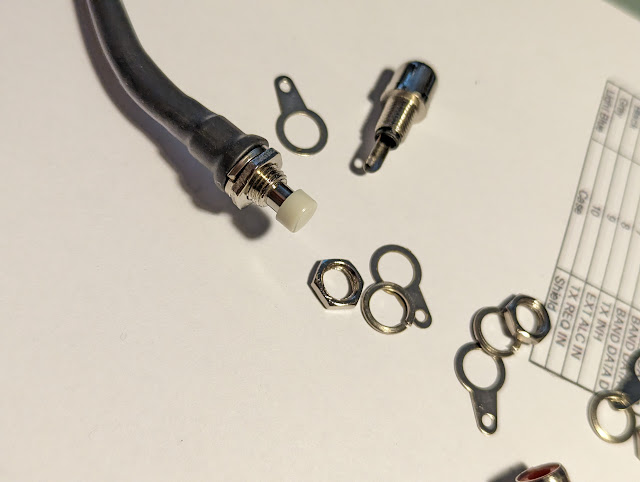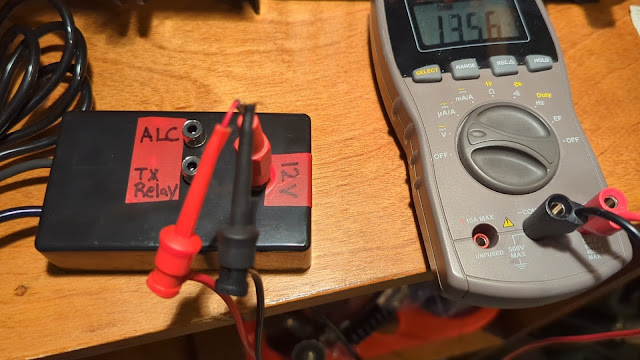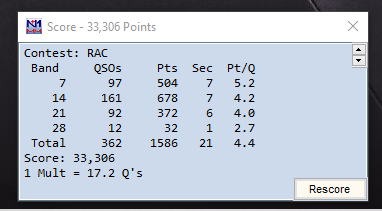Posts Tagged ‘CW’
 International Morse Code Day (April 27)
International Morse Code Day (April 27)
Morse Code Day on April 27 (every year) honors one of the inventers of the Morse code, Samuel Morse, who was born on this day in 1791.
Samuel Finley Breese Morse (April 27, 1791 – April 2, 1872) was an American inventor and painter. After having established his reputation as a portrait painter, in his middle age Morse contributed to the invention of a single-wire telegraph system based on European telegraphs. He was a co-developer of Morse code and helped to develop the commercial use of telegraphy.
Alfred Vail developed the dot-dash structure, and Leonard Gale along with Vail was instrumental in developing the mechanical receiving apparatus for code.
Samuel Morse gets most of the credit because of his work in promoting this code as a viable means of communication. Morse code is still used now. Amateur radio is one of the communities in which Morse code is popular and in daily use.
73 de NW7US dit dit
https://NW7US.us
..
 ATNO for me!
ATNO for me!
Way back on April 20th late in the afternoon, I checked my go-to DX cluster DX heat to see what was happening on the bands. I saw VU2TMP from India spotted and I have seen this station in the past but never heard him just the pileup.
This time he was spotted on 15m and out my way in the afternoon 15m can do some very surprising things. I flipped on the Icom 7610 and spun over to 21.001 CW and low and behold there was VU2TMP at about S5! I put the radio in split and Dual receive and to my surprise there was not much action happening. I dropped my call a few times but he went back to other stations I could not hear most in Europe. I thought to myself the only time I hear him he can’t hear me, but I am only running 100 watts into a Hustler 4BTV.
I dropped my call again a few times and low and behold I hear “VE9?” now I am thinking it’s one of my fellow VE9’s also calling him. I tried again and heard “VE9K?” well know things are getting serious and to top it off he is now fading!! I sent “VE9KK…KK…KK” and his reply was “VE9KK 5NN” Well hot dog I am in the log. I sent my exchange and all was good.
 Ham Radio – QRP 2023-04-25 01:28:00
Ham Radio – QRP 2023-04-25 01:28:00
TX Relay, Power and TX REQ IN
Wiring the Break Out Box and TX-REQ-IN
Partial Success
 Benefits of the Yaesu XF-130CN 300 Hz Crystal Roofing Filter
Benefits of the Yaesu XF-130CN 300 Hz Crystal Roofing Filter
Do You Need That Filter?
The Yaesu FT-DX10 comes standard with a 500 Hz crystal (xtal) roofing filter, but offers an optional 300 Hz roofing filter. Should you purchase the optional filter?
The 300 Hz roofing filter is twice the size of the 500 Hz filter so it must be twice as good right?
If you casually switch back and forth between the two filters on a noisy band, it sounds like the 300 Hz filter markedly improves selectivity and quiets the noise. But try this: Select the 500 Hz filter and narrow the bandwidth (using the bandwidth control) to 300 Hz, then switch to the 300 Hz filter.
When you digitally narrow the bandwidth of the 500 Hz filter to 300 Hz you will "hear" the same reduction in noise as you have cut out 200 Hz of higher frequency sound. Engaging the 300 Hz filter lowers the volume a bit (3-6 dB) due to insertion loss.
So what you are actually "hearing" when you switch back and forth between the filters without changing the digital bandwidth is the reduction of the higher frequency noise that can be accomplished using the bandwidth control alone with the 500 Hz filter.
So, from a selectivity standpointthe 300Hz filter doesn't gain you anything over using the digital filtering with the 500 Hz filter. The real benefit should come in the form of adjacent signal rejection. So let's look at that.
In the video below I demonstrate the signal rejection of a 40 dB over S9 adjacent signal to a weaker S3 - S5 signal.
From the video you can hear that there is a very small demonstrable difference in strong signal rejection when using the 300 Hz optional filter, but the difference is so small that I doubt many of us would find practical benefit over simply narrowing the DSP bandwidth while using the 500 Hz filter. Even when contesting. The digital filtering built into the FT-DX10 is really, really good when using the included 500 Hz roofing filter alone.
Yes, I spent the $200 for the optional filter thinking it would help, but I wished I had known what I do now. I would have $200 for some other nifty radio gadget to spend instead.
That's all for now.
Lower your power and raise your expectations
Richard AA4OO
 Hard work reaps rewards………
Hard work reaps rewards………
I was always told from a young age "something worthwhile ALWAYS requires hard work" That has stuck with me and at times when I was about to throw in the towel a voice inside said, "it requires hard work". I am so thankful that I had an amazing job that gave me benefits and a pension for life BUT I worked my ass off for it.
For me CW is worthwhile and at this point in my ham radio adventure CW contesting has attracted me. Each day I practice my code on a few contest simulators and pileup simulators. Today for the first time I had a perfect score! Now that may not happen again tomorrow, this week or this month BUT today the score was perfect.
 New Book: Learning, Living, and Loving Morse Code…
New Book: Learning, Living, and Loving Morse Code…
There is a new book from a fellow Morse code amateur radio operator, Chris Rutkowski (NW6V), about “Learning, Living, and Loving Morse Code (in a Digital World).” NICE!
Title: “The CW Way of Life“
link: https://amzn.to/3Tm3KfD
Already, I think it rivals any other book on the topic, including “The Art and Skill of…,” or, “The Zen of…”
It is not, however, meant to replace, but to augment, what is available. But, it is a complete guide, including a “work book” section (nearly half of the book?) on how to improve your skill. Really good stuff, but I’m only in one day.
73 de NW7US dit dit
https://nw7us.us
..
 2022 RAC contest in the rearview mirror
2022 RAC contest in the rearview mirror
The Radio amateurs of Canada (RAC) winter contest has come and gone for 2022. This contest is both CW, AM, FM and SSB. As for me, it was the same old same old just CW. The propagation gods were smiling on this contest and conditions were great. I operated 7 hours on Saturday they were 1-hour sessions with about a 10 min break at each end of hour. I find this works best for me and I set in a lunch and or dinner time as well.
The radio, software and antenna worked great no complaints at all. The system I find works best for me is to start out searching and pouncing contacts. This gets in the log those who are only running in the contest and also it gets my ears warmed up to the code speed. I then move on to running which in this contest I did about 90% of the time. The participation was great and while running my best 1-hour count was 91 QSOs which kept me very busy and the hour flew by.
There were nice openings on all the bands my Hustler 4BTV provided for me 10,15,20 and 40m. The settings I find that work best for me on the Icom 7610 are;
Filter set to 400Hz so I can hear those that call a bit off frequency I find that 250 or less a bit too narrow. Now having said that during the "biggy" contests 250Hz is required due to the close proximity of signals.
I keep my APF (audio Peak Filter) on and set it to wide.
I keep the NR (noise reduction) on and set it to a low range.
I use the CW full break in and it does take some getting used to. As you transmit dits and dahs your rig goes back and forth from receive to transmit. This allows me to hear if anyone is trying to contact me while transmitting. You would be shocked at how many times I hear someone. Also when searching and pouncing as you call a station it allows you to hear if another station is also trying to make contact. In that case, I just stop transmitting as it would be just a mixed mess being sent to the station. Also, it allows you to hear if the running station is contacting someone and then you just stop transmitting as you don't want to QRM.
Below are the end results of 7 hours on the air I am very pleased with the numbers and I am getting more confident in my contest running abilities.























